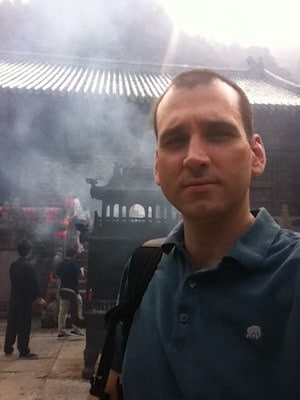The methods handed down from Master Tung invite us to think about the resonance between points, structures, locations and tissue. It encourages us to consider not just the Spleen channel, but why its helpful to think of it as the leg tai yin as well. As well as why the shoulder is like the hip, and overlapping areas of influence can make for a more potent acupuncture treatment.
Listen in as we discuss the power of resonance, how unlearning is part of learning something new, and why you don’t have to understand everything from the beginning, but it’s helpful if you keep pushing yourself to find the threads that connect.
Show Highlights
- How Henry got interested in Tung style acupuncture
- What we need to unlearn so as to make room to learn something new
- A little riff on Ran Gu, Kidney 2
- The importance of resonance
- When to use which taiqi resonance
- Different “systems” of acupuncture are really just ways of prioritizing and privileging information so as to adjust the qi in a particular part of the body
- What it means when someone says a point is “empirical”
- Further considerations on taiji resonance
- Riffing on Linggu
- Treating the Kidney from the wrist
- Closing remarks
醫學一途,不難於用藥,而難於識症。亦不難於識症,而難於識陰陽。
“While on the path of medicine, the choice of medicinals is not difficult. What is difficult is recognizing the pattern. But, it really is not difficult recognizing the pattern. What really is difficult is differentiating Yin and Yang.” -Zheng Qinan
The guest of this show
 During summer vacation after my first year at Oberlin where I was pursuing degrees in music and in Japanese history, a friend and I took a day trip out to Pennsylvania to attend a martial arts seminar that promised to teach us the true secrets of the masters. It turned out to be an acupuncture point striking seminar and while interesting, it wasn’t until the end that it would change my life. The last event of the day was an advanced demonstration for which I was volunteered by my friend. In short, the teacher knocked me out using a very light touch strike on two points (I won’t say which they were!). In one second I went from a skeptic to a believer. I knew, in my body, that everything I had read about acupuncture, channels, and Qi was very deep and very real.
During summer vacation after my first year at Oberlin where I was pursuing degrees in music and in Japanese history, a friend and I took a day trip out to Pennsylvania to attend a martial arts seminar that promised to teach us the true secrets of the masters. It turned out to be an acupuncture point striking seminar and while interesting, it wasn’t until the end that it would change my life. The last event of the day was an advanced demonstration for which I was volunteered by my friend. In short, the teacher knocked me out using a very light touch strike on two points (I won’t say which they were!). In one second I went from a skeptic to a believer. I knew, in my body, that everything I had read about acupuncture, channels, and Qi was very deep and very real.
I finished Oberlin and then lived in Okinawa as a Fulbright scholar, and while there continued my training in martial arts. That entire experience led me to enroll at the New England School of Acupuncture where I started my formal training in Chinese medicine, followed some years later by my doctoral degree from the Oregon College of Oriental Medicine. Today I live in New Jersey with my wife and son, and when I’m not teaching Chinese medicine I see patients in my private clinic. I have a passion for early Chinese medical classics, and trying to bring their teachings into modern clinical practice. I also have a passion for practicing Chen Taijiquan and Qigong, which I teach in northern New Jersey not far from my clinic.
Links and Resources
Visit Henry’s online course offerings and his informative blog at www.asianmedicine.org.
Henry’s clinic website also has blog worth reading.
Henry also has a website dedicated to his qi gong and tai chi offerings.
Join the discussion!
Leave a comment on Qiological’s Facebook page.
